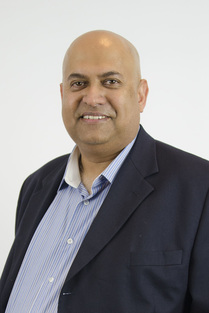Recent boardroom dramas reveal some common issues with which directors need to come to grips. By Sikkie Kajee CD(SA), facilitator at the Institute of Directors in Southern Africa (IoDSA) A recent training session I conducted at the IoDSA highlighted a few common issues that seem to be causing boards a lot of problems. During the session, we looked at five companies that had or are still undergoing some turbulence, in order to learn from their experiences. While each one of them obviously had their own specific dynamics and personalities, it became fairly easy to discern some common challenges that the boards of these respective companies faced. I would like to highlight three such challenges in this article because, in my experience, they are particularly relevant to South African boardrooms. The need for courage The IoDSA has been highlighting the need for corporate leaders to be courageous for some years now. But the notion of what kind of courage directors need to show is more nuanced than one might expect. The obvious requirement is for directors to ask the hard questions, not to be afraid of ruffling feathers and to be prepared to put forward a view that they believe to be in the best long-term interests of the company. Very often, this could mean advocating decisions that make the company money or provide advantage in the short term but potentially compromise its future. This kind of courage must be exercised within the framework of the collective, and this is not always an easy balance to strike. There is tremendous pressure to go with the group, especially as a divided board is never a good thing for the company. Here’s where the second kind of courage comes in, call it “the courage to be independent”. It comes with none of the drama associated with the courage outlined above. I am talking here about the courage to do your own thinking, to give the company the benefit of your thought processes. This is probably what the overworked phrase “exercising his or her mind” really means. It depends on retaining true intellectual independence, examining the board packs critically, and resisting the temptation to be swept along by the accepted narrative or status quo. Humans are storytellers by nature, and everything we say or do advances a particular story, or view of reality. For a director, the courage to be independent is to remember, at all times, never to surrender to the dominant narrative, be it around the boardroom table or more generally. Striking the right balance of power It was clear from the various cases studies that there needs to be a correct power relationship between several of the governance role-players. The first, and this is particularly evident in the public sector, is between shareholder and board. The State, as sole shareholder, often compromises board performance and effectiveness by making appointments based on political considerations rather than skill, experience and probity; some of our parastatals are hamstrung by ineffective boards whose members do not necessarily have the skills to direct and oversee massive enterprises, and who are potentially distracted by political wrangling. In particular, when the shareholder appoints members of the executive team, their loyalties are divided. This overreach by a powerful shareholder can also be a factor in the private sector. Another potential imbalance of power can occur when a Chairman is able to dominate the board, effectively shutting down all voices of dissent. This is a particular challenge when a charismatic, respected company founder takes on the chairmanship late in life. One of the case studies also highlighted the way in which a powerful CEO can unduly influence the board, at least for a time. Indeed, CEO-Board conflict is a hallmark of several of the case studies. Finding the right Chairman is absolutely critical. Appointing directors of the right quality Ultimately, of course, it all comes down to the skills, professional and personal, that directors bring to the table. Establishing what skills a director actually has, and how committed he or she is to ethical action, is something that is hard to ascertain in an interview. This is why the IoDSA is putting so much effort behind independent facilitation of board appraisals and the establishment of a formal designation for directors, the Chartered Director(SA), or CD(SA) designation. By professionalising the boardroom role, the IoDSA is enabling the skills of directors to be evaluated objectively and expertly, as well as providing ways for directors to expand and update their skills through director development and other initiatives. Even more importantly, becoming a CD(SA) would entail formal acceptance of a professional code of ethics and disciplinary code as well as the ability to revoke the designation under certain circumstances. In conclusion, there is no doubt that directors face numerous challenges when it comes doing their jobs. At the same time, though, just understanding what the challenges entail can be half the battle won. ENDS MEDIA CONTACT: Cathlen Fourie, 012 664 2833, [email protected], www.atthatpoint.co.za For more information on the IoDSA please visit: Website: www.iodsa.co.za Twitter: @The_IoDSA LinkedIn: The Institute of Directors in Southern Africa group |
Archives
July 2024
Categories
All
|

 RSS Feed
RSS Feed